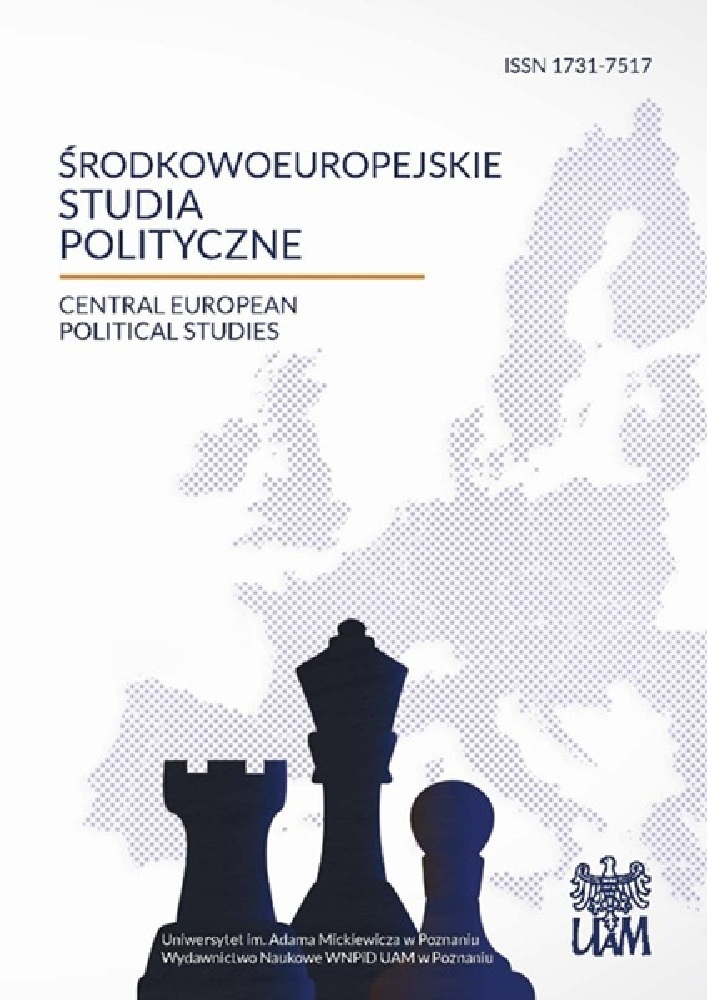Abstrakt
The text emphasises that in European culture, the terms ‘thing’ and ‘person’, as well as ‘subject and ‘object’, alongside their synonyms, have been changing their meanings, or rather acquiring new ones. Particular attention is given to the presentation of the following: 1. the transformation of the language used in the late Middle Ages which was most likely to have facilitated the modern transformation in thinking about the state and the individual (Ockham, nominalism); 2. parallelism of the modern concept of the state as subject (Richelieu, the concept of sovereignty) and the modern concept of the individual as subject (Descartes, the concept of autonomy). It is also indicated that since the 17th century the belief in the sovereignty of the state has alternated with the autonomy of the individual. Consequently, various types of objectification (for example, when individuals’ powers are diminished for the sake of the state, or the other way around). Describing the relations of subjectivity-objectivity and subjectification- objectification their flagrantly dichotomous nature is emphasised, which has entrenched itself as a consequence of European logic. It is also stressed, however, that relentlessly contrasting ‘subjects’ with ‘objects’ and ‘things’ with ‘persons’ continues to constitute one of the foundations of Europeanness.Bibliografia
Baszkiewicz J. (1984), Richelieu, PIW, Warszawa.
Bierdiajew M. (1995), Człowiek i maszyna. Problem socjologii i metafizyki techniki, „IDEA – Studia nad strukturą i rozwojem pojęć filozoficznych”, vol. VII.
Cottingham J. (1998), Descartes, Amber, Warszawa.
Drozdowicz Z. (1991), Główne nurty w nowożytnej filozofii francuskiej, Wydawnictwo Naukowe UAM, Poznań.
Drozdowicz Z. (2014), Kartezjański racjonalizm. Zrozumieć Kartezjusza, Wydawnictwo Fundacji Humaniora, Poznań.
Gałganek A. (2014), Międzynarodowe życie rzeczy. Wprowadzenie, „Środkowoeuropejskie Studia Polityczne”, nr 4.
Kartezjusz, Rozprawa o metodzie, http://wolnelektury.pl/media/book/pdf/rozprawa-o-metodzie.pdf.
Kaye S., William of Ockham (Occam, c. 1280–c. 1349), http://www.iep.utm.edu/ockham/#SH8a.
Kissinger H. (1994), Dyplomacja, Philip Wilson, Warszawa.
Koselleck R. (2009), Dzieje pojęć. Studia z semantyki i pragmatyki języka społeczno- politycznego, Oficyna Naukowa, Warszawa.
Latour B. (2011), Nigdy nie byliśmy nowocześni. Studium z antropologii symetrycznej, Oficyna Naukowa, Warszawa.
Lefebvre H. (1950), Kartezjusz, Książka i Wiedza, Warszawa.
Lengauer W., Majewski P., Trzcionkowski L. (red.) (2011), Antropologia antyku greckiego. Zagadnienia i wybór tekstów, Wydawnictwa Uniwersytetu Warszawskiego, Warszawa.
Łotman J. (2010), Rosja i znaki. Kultura szlachecka w wieku XVIII i na początku XIX, Słowo/Obraz Terytoria, Gdańsk.
Marquard O. (1994), Apologia przypadkowości, Oficyna Naukowa, Warszawa.
McGrade A. S. (2002, 1974), The Political Thought ofWilliam of Ockham, Cambridge University Press, Cambridge.
Philippe M. D. (1999), O miłości, Wydawnictwo M, Kraków.
Platon (2003), Państwo, Antyk, Kęty.
Ruggie J. G. (2010), Wykraczając poza terytorialność: modernizm w stosunkach międzynarodowych, „Nowa Europa”, nr 2.
Rzegocki A. (2008), Racja stanu a polska tradycja myślenia o polityce, Ośrodek Myśli Politycznej, Kraków.
Shapin S., Shaffer S. (1985), Leviathan and the Air Pump. Hobbes, Boyle and the Experimental Life, Princeton University Press, Princeton.
Sloterdijk P. (2011), Gniew i czas, Scholar, Warszawa.
Spade P. V. (tłum.) (1994), Five Texts on the Mediaeval Problem of Universals: Porphyry, Boethius, Abelard, Duns Scotus, Ockham, Hackett Publishing, Indianapolis.
Sylwestrzak A. (1997), Historia doktryn politycznych i prawnych, LexisNexis, Warszawa.
Szymczyński T. R. (2013), Horyzonty sporu wokół istoty zjawiska deficytu demokratycznego w Unii Europejskiej, Dom Wydawniczy Elipsa, Warszawa.
Tibi B. (1997), Fundamentalizm religijny, PIW, Warszawa.
Tiuryn T., Boecjusz i problem uniwersaliów, Fundacja na rzecz Nauki Polskiej, Wrocław 2009.
Vincent P., Panaccio C. (2011, fall),William of Ockham, w: The Stanford Encyclopedia of Philosophy, red. E. N. Zalta, http://plato.stanford.edu/archives/fall2011/entries/ockham/.
Licencja
Copyright
© 2014, Uniwersytet im. Adama Mickiewicza w Poznaniu, Wydawnictwo Naukowe Instytutu Nauk Politycznych i Dziennikarstwa
OPEN ACCESS
